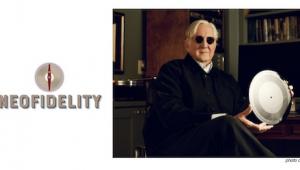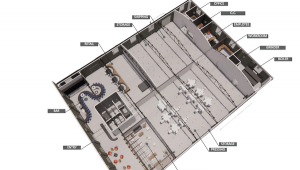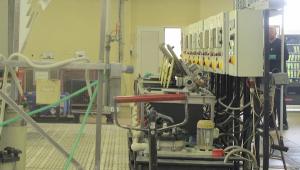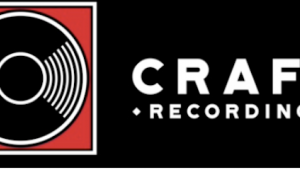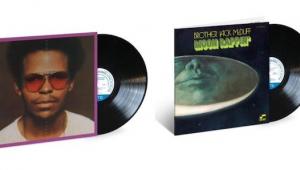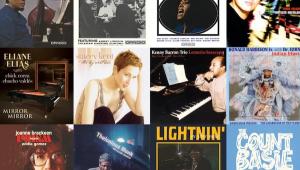I actually stayed to the end, so your jet-lag did not harm the show. Always great vinyl info.
Analogplanet Editor Appears on Scott Wilkinson's "Home Theater Geeks" Podcast

That kind of explains the manic energy (no energy drink or stimulants involved).
You can watch it here but be warned: I do make a crack about "American Exceptionalism"— in the context of American cultural values compared to those of Europe and especially Asia and it deeply offended one conservative viewer who emailed to say he's wiped me from the face of his computer, and will never again read anything I write.
Anyway, whatever your political persuasion, check it out:
- Log in or register to post comments


My wife's gynecologist name was Dr. Krotchmol. Every time I see a photo of you with your head-cam I can't help but laugh. :>o

I should start off by saying, in the interest of full disclosure, that I'm a skeptic when it comes to cables making a big difference. I believe in spending a few dollars on cables just to make sure they are well terminated and will hold up over time, but not hundreds or thousands. I don't want to debate on the merits of thousand dollar power cords and the like. But when it comes to computer cables, well I just can't let that go.
What you said about hearing a difference between wi-fi and the wired connection was perfectly explainable. There is a strong likelihood that whatever software/hardware combination they were using it could examine the strength of the connection and determine whether or not it should further compress the music it's sending. For instance with my Squeezebox setup I can specify for each device whether or not there should be bitrate limiting and what LAME quality setting it should use for compressing the audio. I could drop the audio all the way down to 64kbps if I chose too. In order to fully understand what was happening with the demo you witnessed you'd need to provide more information about the software used, the wi-fi protocol (802.11 a, b, g, or n), and how good the connection was (there's a strong likelihood of a lot of wi-fi activity at such an event which would hurt the quality of the connection).
But when they switched from a regular ethernet cable to their "premium" cable there should not have been any difference unless they were purposely using a poorly manufactured or damaged cable. Your reference to a "CostCo" cable just sounded nonsensical by the way, and clearly shows that you are greatly biased no matter what you are dealing with when someone tells you a cable costs a lot of money. I imagine that even if CostCo sells ethernet cable it probably costs too much.
There are basically three types of ethernet cable that you will encounter in the real world, CAT5, CAT5e, and CAT6. CAT5 is outdated, and no one should be using that in any new installation. CAT6 is preferred, but CAT5e is pretty good also. I personally have very cheap CAT5 installed in the walls of my 11 year old house, and all the cable I run to equipment is CAT6, and that CAT6 costs very little from Monoprice, none of the cables costs more than $5, and that's terminated. Even that old CAT 5 allows me to maintain a gigabit connection between systems on two different floors of my house. In fact, those two computers are connected by no less than 6 cables, two network switches, one female to female connector, and two wallplates. And it works fine, it will stream blu-ray perfectly. If it can do that, it can handle any digital audio format just fine.
Now if for some reason their "CostCo" cable was damaged, or improperly wired, it may have limited the signal to 10mbps. Or perhaps they even used CAT3. I still think that should be sufficient, but again we'd have to know the specifics of the hardware/software setup. It could be that the server would limit the audio even over a 10mbps connection so as not to flood the network. But if the connection was this poor it should be observable, either via lights on the network switch, or via the software being used. And their use of such a cable would likely have been intentional to create a difference to con people into thinking they need to spend a lot of money on ethernet cables.
Keep in mind that in this case you are describing a mechanism that essentially transfers the file between devices. The TCP/IP protocol and other software involved should be handling error correction, and timing wouldn't be an issue. Therefore jitter is not going to be introduced into this, nor any other type of interference.
In short, there is as much likelihood of their premium ethernet cable making a difference as there is that the Monster appliance cable (a real product by the way) will improve the way your dryer dries your clothes. Same can be said of any "premium" ethernet or USB cable. Certainly you can find anecdotal evidence of shoddily made cables that limit bandwidth, but most are going to work just fine regardless of price.

Some folks seem to think that the US is perfect, always has been and therefore any negative criticism of it is some sort of traitorous act. How ridiculous! No aggregation of humans is perfect so improvement is always possible.

Everyone is equal, it really doesn't matter what race you are from.





